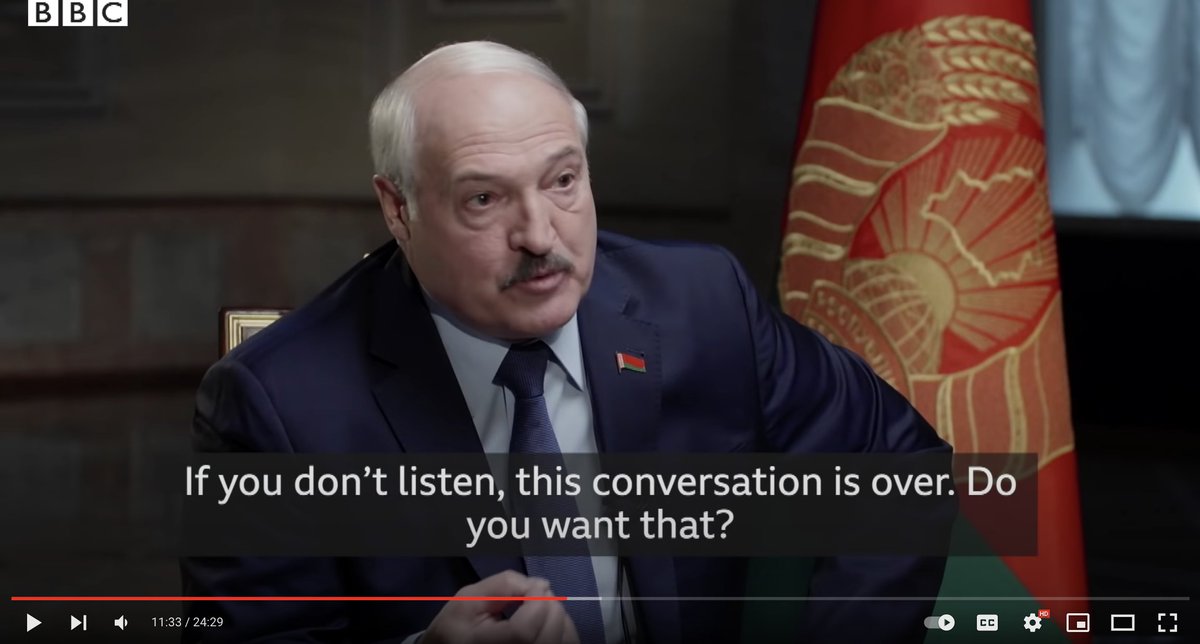
Is "The Gulag Archipelago" fictionalized?
In a recent space, hosted by @r3turn0fth3g00n, I argued that we have grounds to doubt its historical veracity.
And I criticized @jordanbpeterson for not adequately flagging this issue when promoting the text. 1/N
In a recent space, hosted by @r3turn0fth3g00n, I argued that we have grounds to doubt its historical veracity.
And I criticized @jordanbpeterson for not adequately flagging this issue when promoting the text. 1/N

During my time in Russia, I was surprised by how differently the work, Архипелаг ГУЛАГ, was perceived there than in the West.
Most of the students and faculty I spoke to viewed it as a work of *literature* – not history.
Most of the students and faculty I spoke to viewed it as a work of *literature* – not history.
These are not people who deny the horrors of the GULAG system.
Many of them had relatives in the USSR who had been arrested for political crimes – and even tortured.
However, they still insisted that Solzhenitsyn's book was fundamentally misperceived in the West.
Many of them had relatives in the USSR who had been arrested for political crimes – and even tortured.
However, they still insisted that Solzhenitsyn's book was fundamentally misperceived in the West.
The more that I've researched the issue, the more that I've come to think they have a point.
"The Gulag Archipelago" is masterfully written, and it contains eternal truths about the human spirit.
But we diminish it by treating it as something it's not: cold, hard history.
"The Gulag Archipelago" is masterfully written, and it contains eternal truths about the human spirit.
But we diminish it by treating it as something it's not: cold, hard history.
First, the literary character of the work is made express in its subtitle:
"An Experiment in Literary Investigation."
With that name, Solzhenitsyn expressly warned readers that this was NOT a traditional work of historical research.
"An Experiment in Literary Investigation."
With that name, Solzhenitsyn expressly warned readers that this was NOT a traditional work of historical research.

Unfortunately, the subtitle is omitted from the cover art on most modern editions of the text.
It is simply presented as "The Gulag Archipelago," without any qualification.
The latest edition, featuring a foreword by @jordanbpeterson, repeats this regrettable practice.

It is simply presented as "The Gulag Archipelago," without any qualification.
The latest edition, featuring a foreword by @jordanbpeterson, repeats this regrettable practice.


Second, the book's status as literature rather than history was supported by Solzhenitsyn's ex-wife.
Natalya Reshetovskaya, who typed part of the manuscript, said it was unreliable.
She characterized the stories within it as "the folklore of the camps," rather than fact.
Natalya Reshetovskaya, who typed part of the manuscript, said it was unreliable.
She characterized the stories within it as "the folklore of the camps," rather than fact.

It has been argued that, when Ms. Reshetovskaya made those statements in 1974, she was still living within the USSR.
@AgrippaPublius made this point in the space with me.
He claimed that she might have been coerced into lying about The Gulag Archipelago by Soviet authorities.
@AgrippaPublius made this point in the space with me.
He claimed that she might have been coerced into lying about The Gulag Archipelago by Soviet authorities.
However, Ms. Reshetovskaya survived the fall of the Soviet Union.
She lived until 2003, and she was giving interviews to Russian-language publications as late as 2002.
She never recanted her claims about The Gulag Archipelago. I believe she was truthful.
She lived until 2003, and she was giving interviews to Russian-language publications as late as 2002.
She never recanted her claims about The Gulag Archipelago. I believe she was truthful.

Although he left her, Ms. Reshetovskaya was not out to destroy Solzhenitsyn's reputation.
She remained devoted to him until the day she died.
But that devotion could not sway her to change her position about the fundamental literary nature of his magnum opus.
She remained devoted to him until the day she died.
But that devotion could not sway her to change her position about the fundamental literary nature of his magnum opus.

What are we supposed to make of the book in light of her claims?
Is it literature?
Is it history?
I'd argue that it's best understood as something akin to "raw intelligence": striking stories whose collective testament is powerful, but whose individual veracity is uncertain.
Is it literature?
Is it history?
I'd argue that it's best understood as something akin to "raw intelligence": striking stories whose collective testament is powerful, but whose individual veracity is uncertain.
That doesn't mean that we should stop reading the text.
If nothing else, the quality of the prose alone deserves our attention.
And "GULAG denial" would be absurd. The camps existed, and there is no dispute about the scale of the suffering they inflicted.
If nothing else, the quality of the prose alone deserves our attention.
And "GULAG denial" would be absurd. The camps existed, and there is no dispute about the scale of the suffering they inflicted.
But when "The Gulag Archipelago" is portrayed as the last word on what occurred – as a work of historical research, rather than a literary collection of hearsay – we deceive ourselves and each other.
It is a great book, but it belongs in its own genre.
It is a great book, but it belongs in its own genre.
• • •
Missing some Tweet in this thread? You can try to
force a refresh












